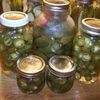According to the folk calendar - Omelyanov day
Omelyanov day according to the folk calendar is celebrated on July 31 (July 18 according to the old style) The holiday received this name from the name of St Emilian of Dorostol, revered by the Orthodox Church on this day
Emilian lived in the 4th century in the city of Dorostol (the territory of modern Bulgaria), was a slave and secretly professed Christianity When the pagan ruler issued a decree on the brutal extermination of Christians, Emilian managed to destroy the pagan temple and escape unnoticed Out of anger, the outraged idolaters grabbed the first inhabitant they came across and began to beat him, believing that he was responsible for the destruction
Then Emilian came out and announced that he himself had broken the statues of the gods and the altar, after which the crowd attacked him and beat him half to death Emilian was burned, but the flames did not touch him, but only burned the surrounding idolaters When the fire went out, the martyr read a prayer to the Lord and his soul went to heaven
Emilian was popularly called Emelyan or Omelyan By this date, peasants tried to finish harvesting grain crops and harvesting hay After hard work, the sickles were cleaned of dirt and placed on the harvested field, symbolically forming a solar circle Then they invited the priest to read a prayer service over them and bless them with holy water Only then were the sickles hidden in storerooms until the next harvest
On Omelyanov Day there was a tradition of going to the bathhouse In this way, the peasants were cleared of fatigue after hard work For the bath they used brooms woven from the stems of field crops Meadow flowers were woven into them for aroma
Residents believed that a mystical spirit, Bannik, lived in the bathhouse In order not to anger him during bath procedures, people entered the bathhouse with a bow It was also necessary to remove the pectoral cross from the chest and leave everything metal outside For Bannik they brought a separate herbal broom, soap, a bucket of water and a cloth for wiping Failure to comply with such conditions could lead to Bannik’s pranks: he could either pour boiling water on him, or throw a stone, or knock dully on the wall
But the housewives on Omelyanov’s day were busy preparing food for the winter So they made preserves and jams from berries, dried mushrooms and fruits in the attic Tomatoes, cucumbers and zucchini were pickled in huge barrels with herbs Prepared supplies were stored in cellars where the temperature was relatively cool
If you noticed heat on Omelyanov Day, you prepared for severe frosts in December What a day it was on Omelyan, such was the wait for the autumn season The yellowed foliage on the top of the birch tree announced early autumn Frequent rumbles of thunder foreshadowed an impending thunderstorm, quiet and rare ones - on the contrary, dry weather
The holiday received this name from the name of St Emilian of Dorostol, revered by the Orthodox Church on this day
Emilian lived in the 4th century in the city of Dorostol (the territory of modern Bulgaria), was a slave and secretly professed Christianity When the pagan ruler issued a decree on the brutal extermination of Christians, Emilian managed to destroy the pagan temple and escape unnoticed Out of anger, the outraged idolaters grabbed the first inhabitant they came across and began to beat him, believing that he was responsible for the destruction
Then Emilian came out and announced that he himself had broken the statues of the gods and the altar, after which the crowd attacked him and beat him half to death Emilian was burned, but the flames did not touch him, but only burned the surrounding idolaters When the fire went out, the martyr read a prayer to the Lord and his soul went to heaven
Emilian was popularly called Emelyan or Omelyan By this date, peasants tried to finish harvesting grain crops and harvesting hay After hard work, the sickles were cleaned of dirt and placed on the harvested field, symbolically forming a solar circle Then they invited the priest to read a prayer service over them and bless them with holy water Only then were the sickles hidden in storerooms until the next harvest
On Omelyanov Day there was a tradition of going to the bathhouse In this way, the peasants were cleared of fatigue after hard work For the bath they used brooms woven from the stems of field crops Meadow flowers were woven into them for aroma
Residents believed that a mystical spirit, Bannik, lived in the bathhouse In order not to anger him during bath procedures, people entered the bathhouse with a bow It was also necessary to remove the pectoral cross from the chest and leave everything metal outside For Bannik they brought a separate herbal broom, soap, a bucket of water and a cloth for wiping Failure to comply with such conditions could lead to Bannik’s pranks: he could either pour boiling water on him, or throw a stone, or knock dully on the wall
But the housewives on Omelyanov’s day were busy preparing food for the winter So they made preserves and jams from berries, dried mushrooms and fruits in the attic Tomatoes, cucumbers and zucchini were pickled in huge barrels with herbs Prepared supplies were stored in cellars where the temperature was relatively cool
If you noticed heat on Omelyanov Day, you prepared for severe frosts in December What a day it was on Omelyan, such was the wait for the autumn season The yellowed foliage on the top of the birch tree announced early autumn Frequent rumbles of thunder foreshadowed an impending thunderstorm, quiet and rare ones - on the contrary, dry weather